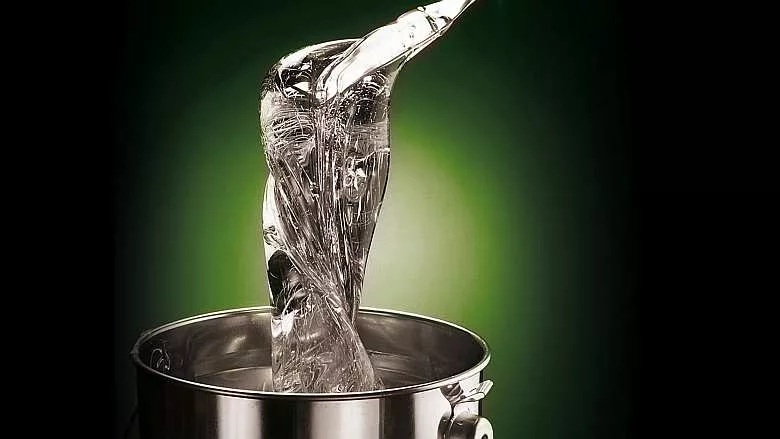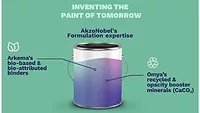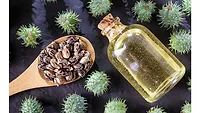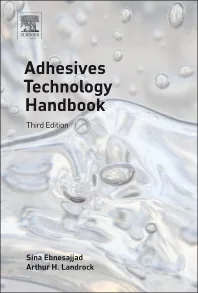BASF: Low-Carbon-Footprint Polymer

BASF's high-performance UV acrylic hotmelt, acResin, is now available with cradle-to-gate product carbon footprint of zero. Courtesy of BASF.
BASF now offers its UV acrylic hotmelt acResin® with a cradle-to-gate product carbon footprint (PCF) of zero kg CO2e/kg2. The new products, acResin® ZeroPCF A 260 UV, A 250 UV, and A 204 UV, are identical in quality and properties to their conventional counterparts. The carbon footprint of acResin LowPCF UV 3532 has been reduced by more than 80%. The PCFs of BASF’s biomass balance (BMB) products are calculated according to the new Together for Sustainability (TfS) guidelines and comply with ISO 14067:2018. These products are manufactured at BASF’s integrated production site in Ludwigshafen, Germany, and sold worldwide.
The sustainability of acResin is made possible by the BMB approach. Instead of fossil feedstock, equivalent quantities of certified renewable feedstock are fed into the system at an early stage of production. TÜV Rheinland Energy GmbH, an independent certification body, has confirmed the PCF calculations for acResin ZeroPCF and acResin LowPCF.
“We’re especially satisfied with this accomplishment because it helps the adhesives industry cut carbon emissions while retaining the outstanding performance of acResin,” said Professor Dr. Thomas Schiele, vice president, Adhesives, Fiberbonding & Paper Coating Chemicals EMEA at BASF. “Furthermore, by adding acResin ZeroPCF to our portfolio, we have expanded our sustainable product range for a more circular economy.”
acResin is designed for use in the manufacturing of high-performance self-adhesive specialty labels and tapes for the automotive, construction, medical, cosmetics, and food and beverage industries. The UV-curable 100% acrylic hotmelt contains only minimal amounts of VOCs and is characterized by low odor and low skin irritability. The products in the acResin portfolio have high clarity for transparent films, outstanding resistance to aging and heat, as well as resistance to water and chemicals. The products all comply with the strict requirements for adhesives with food contact.
To learn more, visit www.basf.com/us.
Looking for a reprint of this article?
From high-res PDFs to custom plaques, order your copy today!






